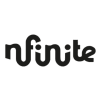Starting off a new fiscal year, direct-to-consumer brands this past week reported mixed earnings results for the first quarter.
While some brands improved on losses, others saw net revenue and income drop. At-home fitness company Peloton reported on May 4 that its Q3 net loss narrowed from $757.1 million in 2022 to $275.9 million. Meanwhile, home decor company Wayfair saw its Q1 net loss jump 11.3% year over year to $355 million.
Overall, 2023 is shaping up to be a transformational year for many companies that are now turning an eye to cutting increased expenses and balancing out their physical footprints.
So what brands fared better than others? From Olaplex to The Honest Company, here’s a look at last week’s busy earnings results:
Hims & Hers
Revenue: $190.8 million | YoY: +88%
Operating loss: $11.2 million | YoY: -33.4%
Net loss: $10 million | YoY: -38.1%
Opening the year strong, direct-to-consumer telehealth brand Hims & Hers reported that its first quarter saw net revenue increase 88% year over year to $190.8 million. Gross margin increased from 74% to 80%, and the company’s net loss narrowed from $16.3 million to $10 million.
The company’s subscribers grew 87% from the year before to 1.2 million. Meanwhile, direct online sales increased by 96% compared to 2022 and wholesale orders were down 9%. Average order volume jumped by 15% to $90.
“Our significant market opportunity, robust consumer demand and consistent execution across our four strategic pillars – trusted brand, leading technology, product innovation and clinical excellence – uniquely positions us as a trusted market leader,” Andrew Dudum, co-founder and CEO, said in a statement.
For the full year, the personal care company expects revenue between $810 million to $830 million.
Olaplex
Revenue: $113.8 million | YoY: -38.9%
Operating income: $35.6 million | YoY: -67.3%
Net income: $21 million | YoY: -66.2%
Hair care brand Olaplex reported that its net sales for the first quarter were down 38.9% year over year to $113.8 million. The sales, which Olaplex says were in line with guidance, showed that specialty retail took the biggest hit (a decrease of 45.8%) while direct-to-consumer sales fell by 31.9%.
The brand attributed its Q1 performance to three factors: a lower level of demand for core products, a negative year-over-year impact from inventory rebalancing at specialty retailers and an inventory pipeline with specialty retailers that diminished compared to Q1 2022.
Olaplex’s net income fell by 66.2% during the quarter, dropping from $62 million last year to $21 million this year. Gross margin decreased from 75.8% to 71% while operating income fell from $108.6 million to $35.6 million.
The brand expects net sales to decrease for the full year between 10% and 20% while adjusted net income could drop up to 44%.
Warby Parker
Revenue: $172 million | YoY: +12.2%
Operating loss: $12.4 million | YoY: -63.2%
Net loss: $10.8 million | YoY: -68.3%
Eye care brand Warby Parker reported revenue was up in Q1 by 12.2% year over year, hitting $172 million. The company also reported its net loss narrowed to $10.8 million from $34 million last year.
“We achieved double digit revenue growth, ahead of expectations and well above the current industry forecasted growth rate,” Warby Parker co-founder and co-CEO Dave Gilboa said in a statement.
Meanwhile, Warby Parker’s gross margin decreased from 58.5% to 55.1%, in part due to store count growth and increased salary and benefit costs for optometrists. The average revenue per customer increased by 8.4% and active customers jumped by 2.5% to 2.29 million.
The company plans to open 40 new stores during the year and expects net revenue to increase by 8% to 10%.
The Honest Company
Revenue: $83 million | YoY: +21%
Operating loss: $18.7 million | YoY: +28.3%
Net loss: $18.9 million | YoY: +29%
Personal care brand The Honest Company started off its 2023 fiscal year with 21% revenue growth in Q1 compared to last year. The brand reported that retail distribution sales increased 21% and digital jumped by 22% in the quarter.
Gross margin dropped from 30% to 24.2% and operating expenses increased by $4 million. The Honest Company’s net loss jumped from $15 million to $19 million, in part due to its new transformation initiative.
The transformation plan, which the company began executing in Q1, is meant to “build the Honest brand and drive growth in higher-margin areas of the portfolio, strengthen the company’s cost structure, drive focus on the most productive areas of our business, deliver greater impact from brand-building investments, and improve executional excellence across the enterprise.”
As such, the company is focused on aligning its pricing to reflect its premium products; expanding gross margin through actions like exiting Europe and Asia, and discontinuing low-margin product lines; and taking on a more focused approach to factors such as promotions. The Honest Company also appointed Kate Barton as its new chief growth officer.
Allbirds
Revenue: $54.4 million | YoY: -13.4%
Operating loss: $35.7 million | YoY: +78.6%
Net loss: $35.2 million | YoY: +60.7%
Executives said Allbirds is “executing well against our strategic transformation plan,” which it outlined in March. Part of that plan includes pulling back on store openings as it focuses on reaching profitability.
At the same time, the DTC footwear brand announced co-founder and co-CEO Tim Brown would step down from the chief executive role and transition to chief innovation officer.
Allbirds recently underwent a workforce reduction, with the brand noting that 21 employees globally were terminated in May, according to a company filing.
Purple
Revenue: $109.4 million | YoY: -23.6%
Operating loss: $22 million | YoY: +19.7%
Net loss: $23.4 million | YoY: +71.7%
Purple faced double-digit revenue declines in Q1 as both its operating and net losses widened. By channel, the company’s wholesale revenue declined 25.3% year over year, while DTC revenue decreased 22.5%. However, the DTC mattress brand’s gross margin was 39.5%, an improvement of 340 basis points.
“I am encouraged that despite lower revenue, we were able to increase gross margins, highlighting the work we've done right sizing our cost structure and improving the efficiency of supply chain and manufacturing processes,” CEO Rob DeMartini said in a statement.
Purple on Monday introduced two new premium collections, following its acquisition of Intellibed in 2022. The company’s improved adjusted EBITDA reflects both operating efficiencies and cost management, including a shift in advertising spend to support the launch of the two collections.
"With the improved and expanded product lineup and new brand messaging, we are optimistic that consumer demand will accelerate in the second half of the year,” DeMartini said. “While near-term challenges persist, we believe we are on the right path towards returning to profitable growth and driving sustained market share gains over the long-term."
Yeti
Net sales: $302.8 million | YoY: +3%
Operating income: $15.1 million | YoY: -54.6%
Net income: $10.6 million | YoY: -58.8%
While Yeti’s net sales were up year over year, it faced shrinking profits during the first quarter. By channel, the brand saw its DTC sales increase 7% from last year to $167 million, while its wholesale sales fell 1% to $135.8 million.
Sales increases were driven by strength in the drinkware category, where sales rose 3% year over year to $190.3 million, and the coolers and equipment segment, which saw a 1% sales increase to reach $104.4 million.
The company’s results were impacted by a voluntary recall Yeti announced in February related to certain soft coolers.
Gross margin during the period rose from 52.7% to 53.5%, representing the first increase in seven quarters, according to CEO Matt Reintjes.
“Supported by our ongoing execution across brand and product, we remain confident in our path ahead as we look to return to double-digit sales growth in the fourth quarter with the return of our full soft cooler line,” Reintjes said in a statement. “We also remain confident in our ability to steadily improve our gross margin profile as we go through the year. Finally, we believe the investments we are making this year will fuel our future growth on a global basis as we look out over the longer term.”
Grove Collaborative
Revenue: $71.6 million | YoY: -3.3%
Operating loss: $13.7 million | YoY: -71.1%
Net loss: $13.1 million | YoY: -72.4%
Even though Grove Collaborative faced declines in revenue during its first quarter, the company has made improvements to its bottom line.
The company has set a goal of achieving profitability next year and CEO Stuart Landesberg said, “we believe the steps we have taken to improve our liquidity position ensure we have the means to reach that goal. We are making excellent progress towards reaching breakeven bottom line and are seeing exciting green shoots in our strategic growth drivers of omni-channel distribution, the health & wellness category, and potential M&A opportunities, while staying true to our vision that the [home and personal care] industry can be a positive force for human and environmental health.”
Grove spent significantly less on advertising during the quarter — $8.7 million compared to $32.8 million in the year-ago period — which drove the revenue declines. As a result, the company saw a 50% year-over-year improvement in its media customer acquisition costs, Landesberg said.
The company’s total orders through its DTC channel were down 30% year over year to 1.1 million, while its DTC customer base shrank 25% from last year to 1.2 million.
Brilliant Earth
Net sales: $97.7 million | YoY: -2.3%
Operating loss: $90,000
Net loss: $440,000
Brilliant Earth swung to a loss during Q1: The company reported an operating loss of $90,000 from a profit of $5.3 million last year, and a net loss of $440,000 from an income of $3.4 million.
Still, CEO and co-founder Beth Gerstein said the period marked the seventh consecutive quarter of “consistently strong performance.”
“Our mission-driven focus to disrupt and transform the jewelry industry and extend our lead as the jeweler for today’s consumer has increased the awareness and resonance of the Brilliant Earth brand with millennial and Gen Z consumers,” Gerstein said in a statement.
The jewelry retailer opened three showrooms during the first quarter pushing its U.S. store count to 28. Total orders also increased over 10% during the period to reach 35,631.
























